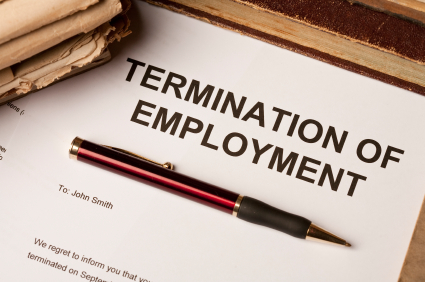
From suing a dry cleaning service for losing a pair of pants to filing for the return of a kidney, people today will sue for the craziest things. In order to sue for all of these wacky claims, there needs to be a lawyer to take it to court. There are so many lawyers out there today who specialize in particular types of law in order to represent a multitude of lawsuits. However, while people are busy suing over strange things, most seem to forget that there is an entire body of law that helps those who have been fired or mistreated at work. Employment lawyers are the type of lawyers who uphold and protect the rights employees have at work or even individuals applying for jobs. Below are 3 types of situations employment lawyers may handle.

In the great state of California, employees and individuals applying for jobs have the right to not be discriminated against. To be more specific, employees and job applicants who can say they belong to a protected class cannot be mistreated or denied employment benefits or opportunities for belonging to that class. Some examples of protected classes included race, age, gender, sexual orientation, disability, pregnancy, and religion. For example, Fred, an employee at an ice cream manufacturing company, recently was injured in a biking accident. Fred’s initial job at the company was to operate the machine that sealed the lids on the ice cream tubs. Although he was injured from his accident, he was still able to operate the machine as long as he was permitted to take a sitting break every 3-4 hours, per his doctor’s recommendation. When Fred provided the documents from his doctor explaining the adjustment he would need to continue working, his boss Ned refused to allow Fred to return to the company. Whenever Fred called Human Resources or emailed Ned regarding his return, he was told the work roster was “full”. After being denied work for two months, Fred was finally let go by the company. Normally, in California, the company does not need a reason to fire Fred because California is an at-will state. Here, because Fred has a temporary disability from his accident, he is considered to belong to a protected class. Ned, as well as the Human Resources Department refusing to allow Fred to work because of his disability, may be considered as disability discrimination. This is a type of case that Fred could seek the guidance of an Employment Lawyer.

Sexual harassment cases can be tricky because the majority of cases are based on behavior that was directed at an employee who did not want the behavior directed towards them. The experience and expertise of an employment lawyer are needed to examine the facts of a case to identify what behavior may constitute as sexual harassment. Basically, certain behavior can become categorized as sexual harassment when it is “unwanted” or “unwelcome”. For example, Kelly, an employee at the headquarters of a media-services provider, had been working at the company for three years. A few weeks ago, a new manager Greg was hired to manage Kelly’s team. Kelly began having issues with Greg once he started hugging her every chance he could. He would hug her whenever he saw her; upon her arrival, in the break room, at meetings, and even once in the elevator. Once, Kelly tried to avoid one of Greg’s hugs and later that day Greg did not choose Kelly for a project that was promised to her the previous month. Denying Kelly this opportunity meant missing out on a pay increase and a chance to enhance her job experience. This demonstrated to Kelly that unless she allowed Greg’s physical affection, she was going to be punished. Here, although the facts do not mention whether these hugs were sexual or if Greg was even romantically interested in Kelly, nonetheless the behavior was unwelcome and made Kelly feel uncomfortable. The fact that following a rejection of one of his hugs, Greg took Kelly off of a project, we can infer that Greg may have retaliated against Kelly, sending the message that if she refused his physical affection she would be denied employment benefits. Kelly would likely need to report the issue to another manager or Human Resources or she could also call an employment lawyer to discuss what her next step should be.
From inappropriate touching to crude jokes, certain actions can be considered as sexual harassment and may be deemed unlawful in the workplace. More specifically, not only is it unlawful, but an employer is responsible for enforcing a zero-tolerance policy for particular types of harassment that involve sexual harassment. Within reason, an employer is expected to take certain measures to ensure that the workplace is free from being susceptible to sexual harassment. For instance, an employer should arrange sexual harassment prevention seminars for their employees in order to educate staff on what behaviors are appropriate and which may be unwelcome and/or offensive.

Wrongful termination means that an employee was fired for an unlawful reason. Wrongful termination can cover a multitude of situations in the workplace. One example of wrongful termination may be found where an employee reports illegal activity occurring at their workplace. If the employee reports the issue and is then fired, it may be inferred that the employee was fired for an unlawful reason. Another example of wrongful termination may be if an employee requests to take a medical leave due to pregnancy or a medical condition. Also, if an employee is fired for having a disability, for requesting accommodation for their disability, and/or for taking time off for their disability, that may constitute as wrongful termination. Lastly, another example of wrongful termination may be if an employee makes a complaint about being sexually harassed or discriminated against.
Some lawyers may handle some wacky cases, but employment lawyers are there to protect the rights of employees across California.



